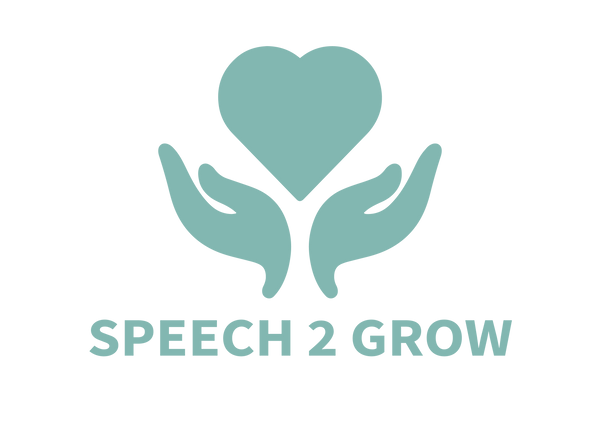Services
-
Group Therapy Session
Learn MoreA pediatric group session with a pediatric speech-language pathologist (SLP) involves multiple children working together on speech and language skills in a structured and supportive environment.
-
Individual Therapy Session
Learn MoreA pediatric therapy session with a pediatric speech-language pathologist (SLP) is tailored to the individual needs of the child and involves various activities and techniques to improve their speech and language skills.
-
Language Evaluation
Learn MoreA language evaluation by a pediatric speech-language pathologist (SLP) is
designed to assess a child's understanding and use of language. -
Parent and Caregiver Training
Learn MoreParent and caregiver training provided by a pediatric speech-language pathologist (SLP) is designed to equip families with the knowledge and skills to support their child's communication development.
-
Speech and Language Evaluation
Learn MoreA comprehensive speech and language evaluation conducted by a pediatric speech-language pathologist (SLP) involves multiple components to assess both speech and language skills.
-
Speech Evaluation
Learn MoreA speech evaluation conducted by a pediatric speech-language pathologist (SLP) typically consists of several key components to assess a child's speech and communication skills.
Group Therapy Session
Group Therapy Session:
Within the Group
- Targeted Support: Providing individualized adjustments within the group to address each child’s specific needs.
- Observation: Monitoring each child’s participation and progress, taking notes for future sessions.
Wrap-Up and Reflection
- Activity Review: Summarizing what was learned and practiced.
- Sharing Time: Allowing children to share their experiences, reinforcing language skills and confidence.
- Home Practice: Suggesting activities for parents to reinforce skills at home.
Parent/Caregiver Involvement
- Updates and Feedback: Informing parents about their child's progress.
- Home Activities: Recommending strategies and activities for home practice.
Group sessions enhance peer interaction and provide opportunities to practice communication skills in a social context, complementing individual therapy effectively.
Individual Therapy Session
Individual Therapy Session:
Session Structure and Goals
- Greeting & Warm-Up: Build rapport with casual conversation and fun activities.
- Review & Goal Setting: Recap previous session, gather feedback, and set clear goals with the child’s input.
Activities and Support
- Targeted Activities: Focus on articulation, language, fluency, and voice exercises.
- Interactive Fun: Include games, storytelling, crafts, and visual/AAC supports to enhance learning.
Monitoring and Wrap-Up
- Progress Tracking: Observe, collect data, and adjust activities based on the child’s performance.
- Wrap-Up & Planning: Summarize the session, assign homework, provide positive feedback, and discuss next steps.
This structured approach ensures that each session is productive, engaging, and tailored to the child's specific needs, fostering their progress in speech and language development.
Language Evaluation
Language Evaluation:
Initial Information Gathering
- Parent/Caregiver Interview: Collect child's developmental, medical, and
educational history. - Questionnaires:
Parents complete forms about the child's language skills and concerns.
Assessment Methods
- Observation:
Observe the child in natural settings (play, interactions). - Standardized Testing:
Assess receptive (understanding) and expressive (producing) language skills. - Non-Standardized and Play-Based Assessments: Use informal tools and play to evaluate language abilities.
- Pragmatic Language Assessment: Evaluate social communication skills.
- Oral-Motor Examination: Check physical structures involved in speech.
- Hearing Screening:
Ensure hearing is not affecting language development.
Collaboration and Reporting
- Feedback and Collaboration: Discuss findings with parents and set goals.
- Report and Recommendations: Provide a detailed report with therapy suggestions and strategies for home and school.
This approach ensures a comprehensive understanding of the child's language abilities for an effective treatment plan.
Parent and Caregiver Training
Parent and Caregiver Training:
Education and Awareness
- Understanding Milestones: Educate about typical speech and language
development. - Identifying Red Flags: Teach signs of speech and language delays.
Practical Strategies
- Tailored Techniques:
Provide specific strategies for the child's needs. - Daily Integration:
Show how to incorporate techniques into everyday routines.
Enhancing Communication
- Language-Rich Environment: Offer tips for creating a language-rich home.
- Encouraging Interaction: Guide on sustaining meaningful conversations.
This training empowers parents to support their child's communication development effectively.
Speech and Language Evaluation
Speech and Language Evaluation:
Initial Information Gathering
- Case History:
Collect detailed information about the child's development, medical history, and family background. - Parent Input:
Use questionnaires and interviews to gather observations and concerns
from parents.
Assessment Methods
- Observation:
Watch the child in natural settings to understand real-life communication. - Standardized Testing:
Evaluate articulation, receptive and expressive language, fluency, and voice. - Non-Standardized and Play-Based Assessments: Use informal tools and play activities to gather additional insights.
- Pragmatic and Oral-Motor Assessments: Assess social communication skills and physical speech structures.
Feedback and Reporting
- Parent Collaboration:
Share findings with parents, get their input, and set goals together. - Detailed Report:
Provide a comprehensive report with recommendations for therapy and strategies for home and school.
This approach ensures a complete understanding of the child's communication abilities and supports the development of an effective, individualized treatment plan.
Speech Evaluation
Speech Evaluation:
Initial Information Gathering
- Case History:
Collect information about the child's development, medical background, and family history. - Parent Input:
Use interviews and questionnaires to gather observations and concerns.
Assessment Methods
- Observation:
Watch the child in natural and structured settings to see real-life communication skills. - Standardized and Non-Standardized Testing: Evaluate articulation, fluency, voice, and social communication skills using a mix of formal and informal tools.
- Play-Based and Oral-Motor Assessments: Engage in play activities and examine speech structures to gather additional insights.
Feedback and Reporting
- Parent Collaboration:
Share initial findings with parents, get their input, and set goals together. - Detailed Report:
Provide a comprehensive report with recommendations for therapy and strategies for home and school.
This approach ensures a thorough understanding of the child's communication abilities and supports the development of an effective, individualized treatment plan.
